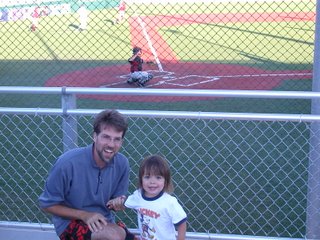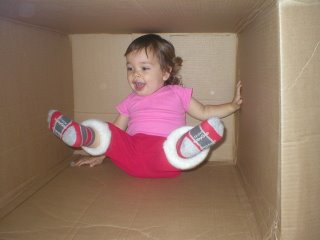
I work at a popular science magazine that covers research into the roots of compassion, altruism, empathy, and other prosocial human behaviors and emotions. Last month we reviewed a study by Dutch neuroscientist Erno Jan Hermans (and colleagues) that set out to test whether testosterone can inhibit a person's ability to empathize with someone else.
To find out, the researchers dosed twenty women with either testosterone or a placebo, and then measured their ability to mimic facial expressions, which previous research has shown to be one marker of empathy. Their results showed that testosterone might indeed reduce empathic behavior.
I initially objected to publishing a brief about the study in the magazine. I'm automatically suspicious of the methodologies and conclusions of any study that suggests biology is behavioral destiny. Plus, even if the science is solid, I didn't think it would be useful to our readers. If testosterone really does limit empathy, so what? How does that knowledge help our readers, who are mostly educated lay people?
I talked it over with the other editors, including a psychologist who reviewed the methodologies. He felt they checked out. We agreed that reporting the study fell within the mission of the magazine. And so we turned to discussing ways to report the findings that would not play to social stereotypes about men and women. Looking back, I can see that I was learning something about how we can talk about science in popular forums.
It's first critical to begin with the fact that all human beings have the capacity for empathy; it's fundamental to our psychology, with a basis in evolution. Men are human beings and are therefore capable of empathy. That puts the findings in broad perspective. In addition, we need to keep individual variance in mind; I've met lots of men who are more empathetic than many women, and I'm sure you have, too.
Second, it's important to acknowledge the limits of the study. To get those, you first have to read the study and talk to the scientists themselves. Most scientists are extremely reluctant to speculate or make sweeping generalizations based on limited findings, for good reasons; they're also careful to acknowledge the limits of their methodologies and to suggest further areas of study. This doesn't stop journalists, politicians, and bloggers from seizing on findings and putting them at the service of their personal and political agendas; hell, I've done it plenty of times. (That's our job, but I think we can perform our jobs more responsibly.)
In the brief we are publishing in the magazine, we were careful to reflect the limitations of this methodology, noted by the researchers themselves. "While facial mimicry may be one component of empathic behavior, it is clearly not the defining feature," writes Mario Aceves, a fellow with the UC Berkeley Greater Good Science Center, in the brief. "Before we conclude that testosterone leaves men at an emotional disadvantage, additional studies must show that testosterone affects the many other dimensions of empathy."
My colleague Jason Marsh asked Erno Jan Hermans for a comment. "[Testosterone] reduces empathetic behavior; we can't say it reduces empathy,” he said. His research also shows that while "testosterone is a regulating factor in gender-specific behavior... obviously you can never rule out that there are cultural differences in play."
Last and certainly not least, scientific findings of this type don't dictate some kind of automatic ethical or political response. They do not prove that men are by nature emotional dolts, and therefore not accountable for idiotic behavior. They do not suggest that women are in essence loving, nurturing, dove-like creatures of ethereal beauty. No woman who wants to live in a more empathetic, compassionate society should plan to launch all-female communes in South America--even if you were to screen out women with high levels of testosterone, you're still not going to achieve a feminine utopia like Charlotte Perkins Gilman's Herland. Human beings are too complex. Attacking complexity is not the path to a better world.
Science is an evolving dialogue, in which new conclusions are constantly modifying old ones. Newton wasn't wrong about how motion changes with time, but Einstein took his ideas to the next level when he showed how mass bends spacetime. When back in the Seventies, Irven DeVore and Robert Trivers launched the field of sociobiology--which sought to find biological bases for human behavior--critics quite rightly raised the specters of Social Darwinism and Nazi eugenics, both of which invoked biological science as justification for policies that ranged from abandonment of the poor, denying rights to women and many other people, forced sterilization, and systematic genocide.
But as sociobiology branched off into evolutionary psychology and behavioral ecology, researchers discovered some things about human beings that directly contradicted the specious, self-serving assumptions of the Social Darwinists. Scientists like Johnathan Haidt, Leda Cosmides, Marc D. Hauser, and many others have found that human beings appear to be hardwired for compassion, altruism, cooperation, and so on. Biology might indeed be destiny, but it's a provisional, sanguine kind of destiny that doesn't automatically lead to pessimistic or destructive views of humanity. Above all, a great deal of new science is demonstrating the degree to which we humans are tough, adaptable little monkeys, defined right down to our neurons by a capacity for continuous growth and evolution.
Whenever we read about some new study about parents and children, men and women, we should remember how searching and tenuous the science is, and refrain from sweeping generalizations that might contradict our deepest moral instincts. We can't ever know where our questions will lead, but we can't be afraid to ask them.











 By
By

